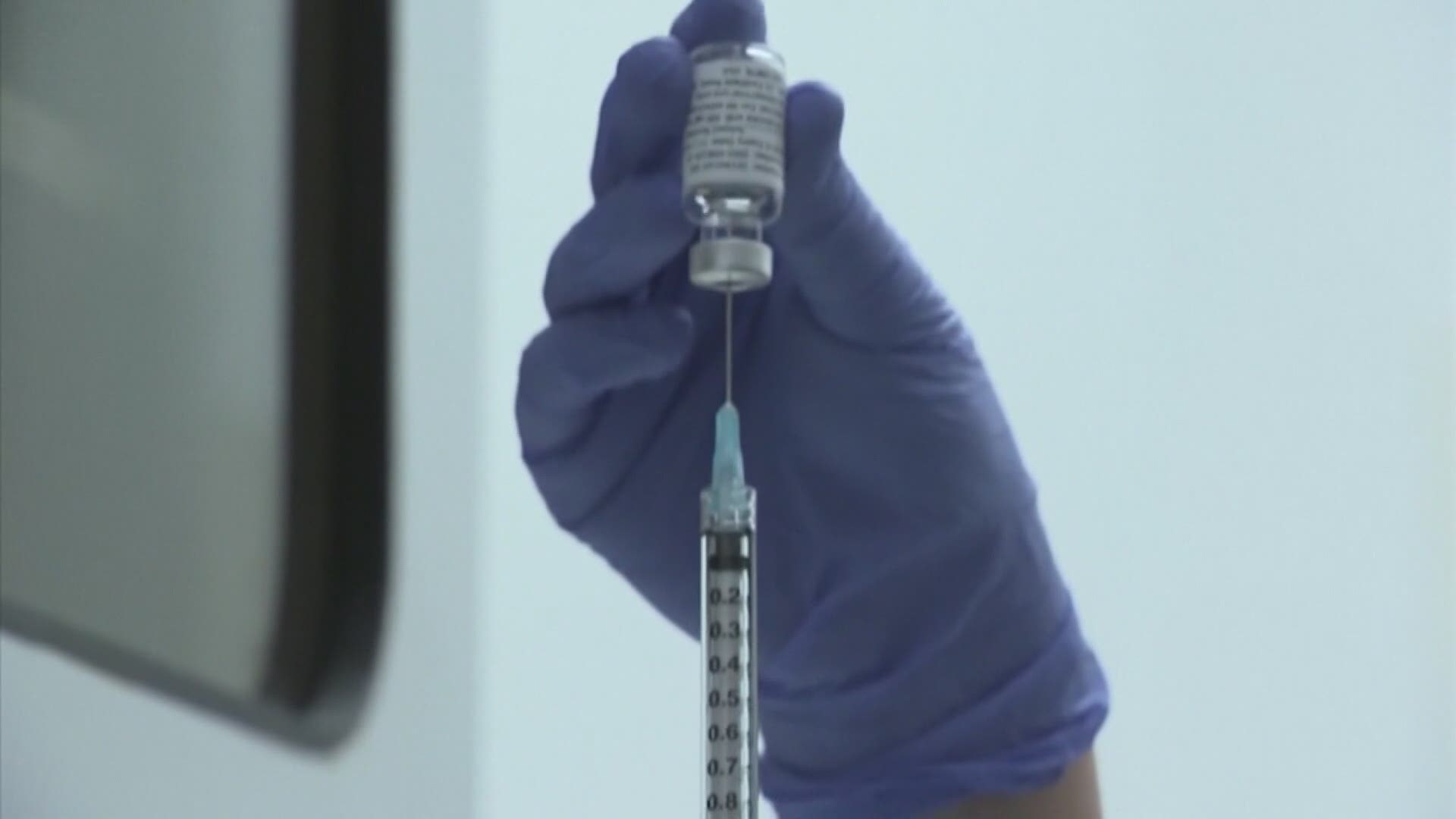MICHIGAN, USA — People 50 years old or older with a pre-existing condition, as well as, family caregivers will become eligible for the COVID-19 vaccine starting Monday, March 8. Beginning Monday, March 22, vaccine eligibility will again expand to include all Michiganders 50 and older.
This is a shift from previous prioritization guidelines that had other essential workers up next for the vaccine, like grocery store workers.
The state said of the expansion: "MDHHS is accelerating vaccination of these individuals due to concern around disparity in life expectancy and in an effort to remove barriers to vaccine access."
The state's goal is to vaccinate 70% of the population ages 16 and older as soon as possible.
Here is who qualifies under MDHHS's expansion of the vaccine:
I am a person living with a disability. Am I eligible to receive a vaccination?
The ADA defines a person with a disability as a person who has a physical or mental impairment that substantially limits one or more major life activity. This includes people who have a record of such an impairment, even if they do not currently have a disability. It also includes individuals who do not have a disability but are regarded as having a disability. Examples of major life activities include eating, sleeping, standing, lifting, reading, bending, concentrating, thinking, communicating, and working. In addition, the ADA also includes major bodily functions (e.g., “functions of the immune system, normal cell growth, digestive, bowel, bladder, neurological, brain, respiratory, circulatory, endocrine, and reproductive functions”).
What medical conditions would make me eligible for vaccination during this phase for those individuals age 50 and older?
Certain underlying medical conditions are at increased risk for severe illness from the virus that causes COVID-19. Severe illness from COVID-19 is defined as hospitalization, admission to the ICU, intubation or mechanical ventilation, or death.
- Cancer
- Chronic kidney disease
- COPD (chronic obstructive pulmonary disease)
- Down Syndrome
- Heart conditions, such as heart failure, coronary artery disease, or cardiomyopathies
- Immunocompromised state (weakened immune system) from solid organ transplant
- Obesity (body mass index [BMI] of 30 kg/m2 or higher but < 40 kg/m2)
- Severe Obesity (BMI ≥ 40 kg/m2)
- Pregnancy
- Sickle cell disease
- Smoking
- Type 2 diabetes mellitus
The following medical conditions might place an individual at an increased risk for severe illness from the virus that causes COVID-19, and are therefore also eligible for vaccination in ages 50 and above at this time:
- Asthma (moderate-to-severe)
- Cerebrovascular disease (affects blood vessels and blood supply to the brain)
- Cystic fibrosis
- Hypertension or high blood pressure
- Immunocompromised state (weakened immune system) from blood or bone marrow transplant, immune deficiencies, HIV, use of corticosteroids, or use of other immune weakening medicines
- Neurologic conditions, such as dementia
- Liver disease
- Overweight (BMI > 25 kg/m2, but < 30 kg/m2)
- Pulmonary fibrosis (having damaged or scarred lung tissues)
- Thalassemia (a type of blood disorder)
- Type 1 diabetes mellitus
I am a caregiver of a child with special health care needs. Am I eligible to receive a vaccination?
Caregiver family members and guardians age 16 years and older of children with special health care needs may be vaccinated at this time. Special health care needs include any physical, developmental, mental, sensory, behavioral, cognitive, or emotional impairment or limiting condition that requires medical management, health care intervention, and/or use of specialized services or programs. The condition may be congenital, developmental, or acquired through disease, trauma, or environmental cause and may impose limitations in performing daily self maintenance activities or substantial limitations in a major life activity.
RELATED VIDEO:
►Make it easy to keep up to date with more stories like this. Download the 13 ON YOUR SIDE app now.
Have a news tip? Email news@13onyourside.com, visit our Facebook page or Twitter. Subscribe to our YouTube channel.


